
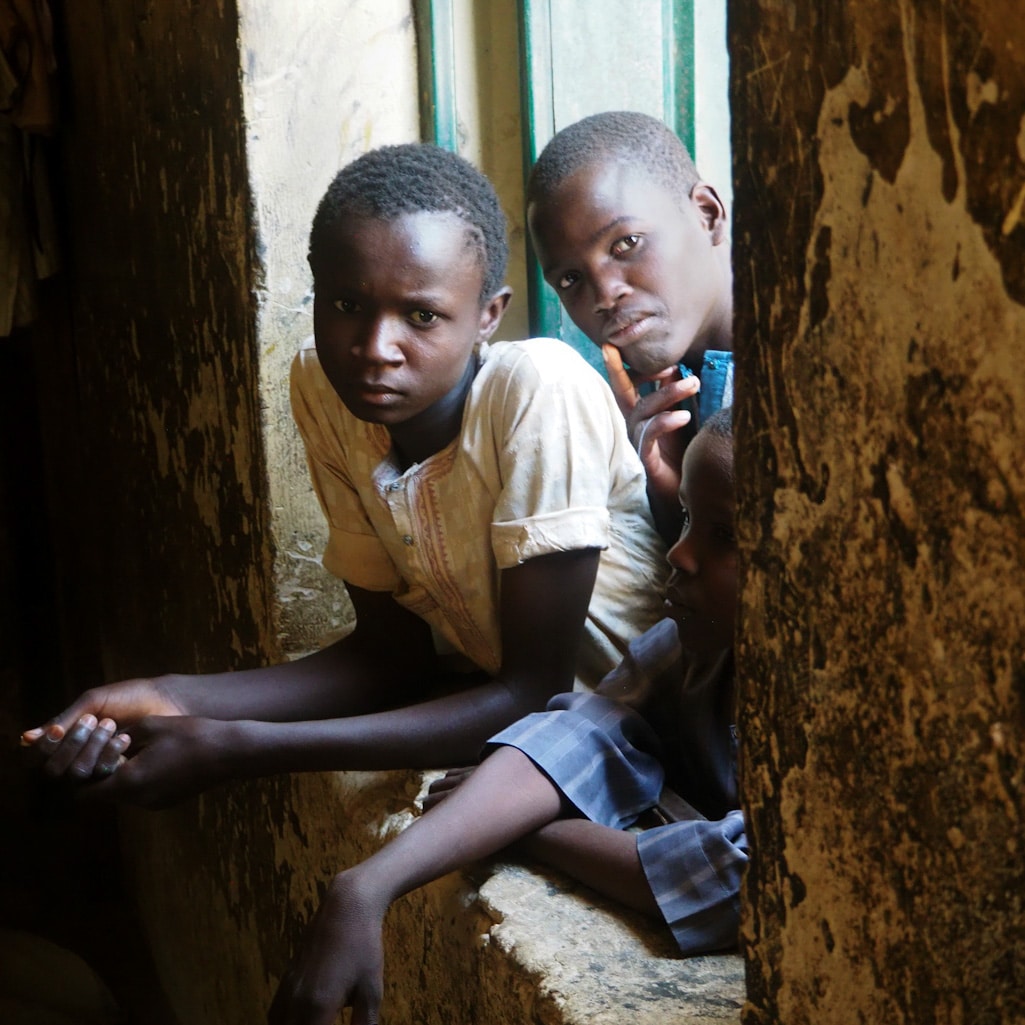
White Dove (Farar Tattabara) Messaging Hub in Northern Nigeria & Lake Chad Basin
This project produces and disseminates innovative radio, TV, and social media programming to strengthen positive local narratives that reduce vulnerability to violent extremism in Northern Nigeria and the Lake Chad Basin. 2016-present


Project Mission — To create positive social change for millions of under-served people across Northern Nigeria, by providing critically needed information and education through innovative media appropriate technology and direct community engagement.
There were no people to look up to. But now with your Ina Mafita [radio] program, we have hope and are starting to see ourselves as the solution.
– Young listener from Borno State (former member of Boko Haram, now volunteers for a community self-defense force)
Launched in September 2016 with the generous support of the US Embassy in Abuja, the White Dove (Farar Tattabara, in Hausa) Messaging Hub has become a popular, locally branded CVE communications and peacebuilding platform in Northern Nigeria and the Lake Chad Basin.
Farar Tattabara builds social resilience to violent extremism through a community-centered program built around a transmedia Messaging Hub that provides credible alternative narratives to Boko Haram’s ideology and recruitment in Northern Nigeria and the Lake Chad Basin.
We do this by amplifying youth voices and positive narratives that reduce vulnerabilities to violent extremism, encourage defection from armed groups, and create viable alternative pathways for vulnerable and socially excluded youth. To date, key program activities include:
- Three original CVE and behavior change radio programs (over 200 hours of content aired to date) that have a broadcast reach of over 20 million weekly listeners in all 19 Northern Nigeria states
- Behavior change television programming on our partner TV station, AREWA24, which reaches 38 million weekly viewers in Nigeria and across West Africa
- Digital literacy, leadership, and technical capacity building through innovative Tech Camps and Hackathons for hundreds of underserved and marginalized youth
- 35 trained community reporters producing local media content and facilitating listening groups to monitor and evaluate the impact of EAI’s media programming
- 63 trained Peace Promotion Fellows working to address key drivers of violent extremism and youth social exclusion in Northern Nigeria (including 12 featured on AREWA24’s popular Matasa@360 Youth Empowerment show and seven chosen as YALI Fellows)
- Pioneering research highlighting the correlation between radicalization and empowerment, with the goal of strengthening offramps and agency for radicalized and at-risk youth in support of social cohesion, rehabilitation, and civic engagement
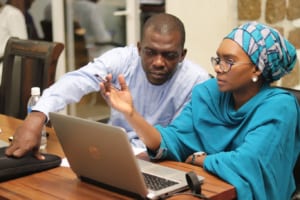
Now in its fourth year, funded by the Global Engagement Center of the U.S. State Department with an extension from the U.S. Embassy in Nigeria, EAI is consolidating these various efforts one comprehensive and sustainable CVE Messaging Hub under the Farar Tattabara brand.
This includes commercial and other revenue generation, television and radio programming, community outreach, online contests and campaigns, social media and tech-driven initiatives, applied research, and alternative messaging training and mentorship for youth leaders and key influencers.
As we expand, we are increasing our quantitative surveying and qualitative program research to monitor and evaluate the platform’s reach and impact, achieving some efficiencies across awards and activities.
The foundation of the Farar Tattabara Messaging Hub includes three weekly 30-minute original radio series:
- Ina Mafita (“The Way Forward”), a youth-focused CVE talk show, produced by EAI;
- Ilimi Abin Nema (“The Pursuit of Knowledge”), a talk show focused on Islamic school reform, parenting, and the life of Almajiri children, produced by EAI; and
- Labarin Aisha (“Aisha’s Tale”), a drama featuring the story and challenges of a young displaced girl, Aisha, and her family as they face related hardships, produced by EAI in partnership with the Jos Repertory Theatre.
After three years of successfully producing and broadcasting high-quality radio content across Northern Nigeria, we are now focused on sustaining and scaling our flagship Farar Tattabara radio programming. We will continue airing the Ina Mafita and Ilimi Abin Nepa radio programs with more interactive formats and more engaging themes and guests. We are developing independent revenue streams to ensure long-term sustainability, further expanding the Farar Tattabara brand and organizational structure to sustain continued growth.
As the backbone of our Farar Tattabara Hub, these programs are a lifeline for millions of Nigerians and are our entry point into people’s homes and minds. We worked throughout 2019 to align Farar Tattabara’s mission with its brand, so that corporations, governments, and foundations will want to be associated with the platform and benefit from its reach.
The Farar Tattabara Hub offers high impact and tremendous reach, with a broadcast audience in the tens of millions. In 2018, we launched a new website, www.farartattabara.com, to house our Messaging Hub, including all our media content, research, activities, and other resources for target communities. Given the growing popularity of podcasts globally, we have made all previously aired episodes available online. This listening platform is being pushed out through our social media sites (which combined have over 60,000 followers), reaching a new online audience based in Nigeria and in Hausa-speaking communities around the world.
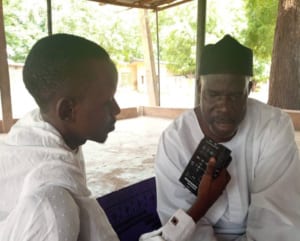
Impact of Our Radio Programming
Over the course of the Farar Tattabara project, EAI has conducted several assessments. During one robust assessment of over 500 people, EAI asked people if they had changed their behaviors or attitudes around issues such as non-violence, gender inclusion, and supporting youth as a result of listening to our shows. Ninety percent reported a positive change in their behavior with listeners telling us that they are hungry for role models, for positive examples, for reliable information, and for inspiration. Listeners enthusiastically told us that “Farar Tattabara is a lifeline for us,” that “Ina Mafita helps us to understand that bad things can be changed.” When asked to describe the role of Farar Tattabara in his life, one young internally displaced man said: “Ina Mafita is like a school where we go to learn. Ilimi Abin Nema is like a hospital where we go to cure ourselves.”
The assessment found that Farar Tattabara programs are empowering a new generation of role models and informed messengers who are actively working to improve the lives of their families, friends, and communities across northern Nigeria as a direct result of information and inspiration they are receiving from the shows.
Many listeners have reported starting small businesses, going back to school, stopping drugs, and preventing others from joining armed criminal or extremist groups due to the messages conveyed on our various programs.
Parents report staying closer to their children, especially those they send to “almajiri” Koranic schools. Religious leaders report being more supportive of incorporating academic subjects into the Koranic school curriculum, including math, history, science, English, and life skills. There is increased public discussion of the interconnections between marginalization, drug abuse, and violent extremism.
Hundreds of people interviewed by EAI across the North report changing attitudes about the potential of formerly radicalized youth to be rehabilitated and reintegrated into society. Many elders report a better understanding of the struggles young people face and wanting to support youth, including radicalized or drug-addicted youth, to help them achieve a brighter future.
This shift in knowledge, attitudes, and behaviors has had a positive impact on Boko Haram defections, with increases reported from isolated parts of Borno.
- As a result of “Ilimi Abin Nema,” fewer religious schools are sending almajiris to beg in the streets while more are receiving academic education, positioning them to earn a livelihood and reducing the sense of isolation and abandonment felt by young boys who fall prey to extremist groups and rhetoric.
- As a result of “Ina Mafita,” communities are welcoming victims and former Boko Haram fighters back to their communities and are better equipped to understand their experience and support their healing and reintegration.
- As a result of “Labarin Aisha,” young women and vulnerable displaced communities are more optimistic about their future, informed about their rights, and exhibit resilience in the face of challenging circumstances.
Being an advocate for peace fulfills me though it has been a very hard journey. I believe that within the six months of my fellowship with [EAI] I will make a difference in the minds of youth like me to shun violence and embrace peace.”
As a child, Muhammad wanted to become a military officer. It seemed like an obvious thing to do after being raised in the midst of constant insecurity: he’d lost his parents at the age of two and had to flee by foot to Maiduguri, the capital of Borno state, following an insurgency in Bama. Grateful to have been raised by his sisters, uncles, and aunts, he says optimism is the key. Now 20, Muhammad lives in Maiduguri with his uncle where he is completing his degree in marketing. He is committed to bringing about a peaceful and violence-free Nigeria as a certified peace ambassador.
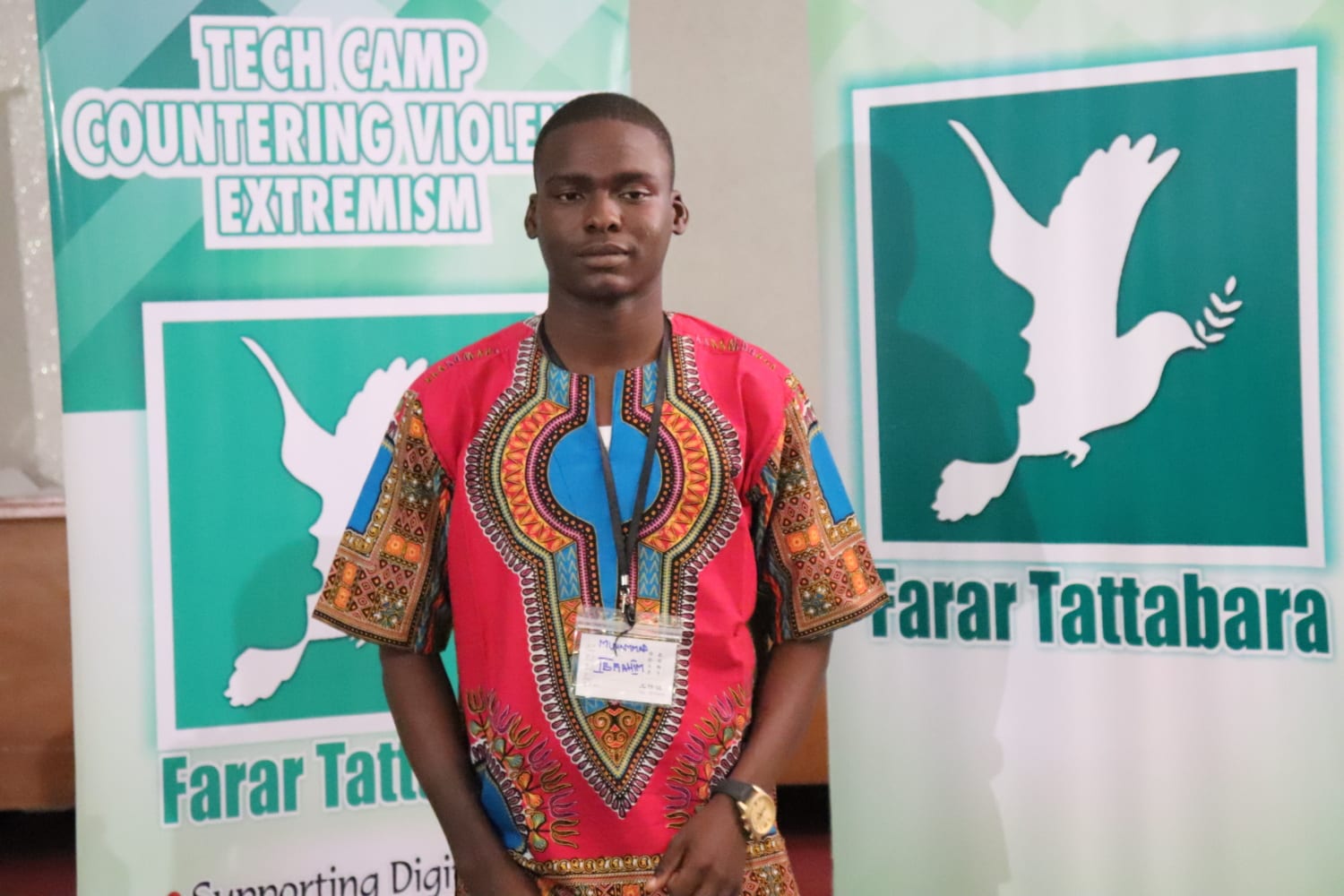
"Youth have to be optimistic and know that good things never come easy and know that success never comes to you, you have to go for it.”
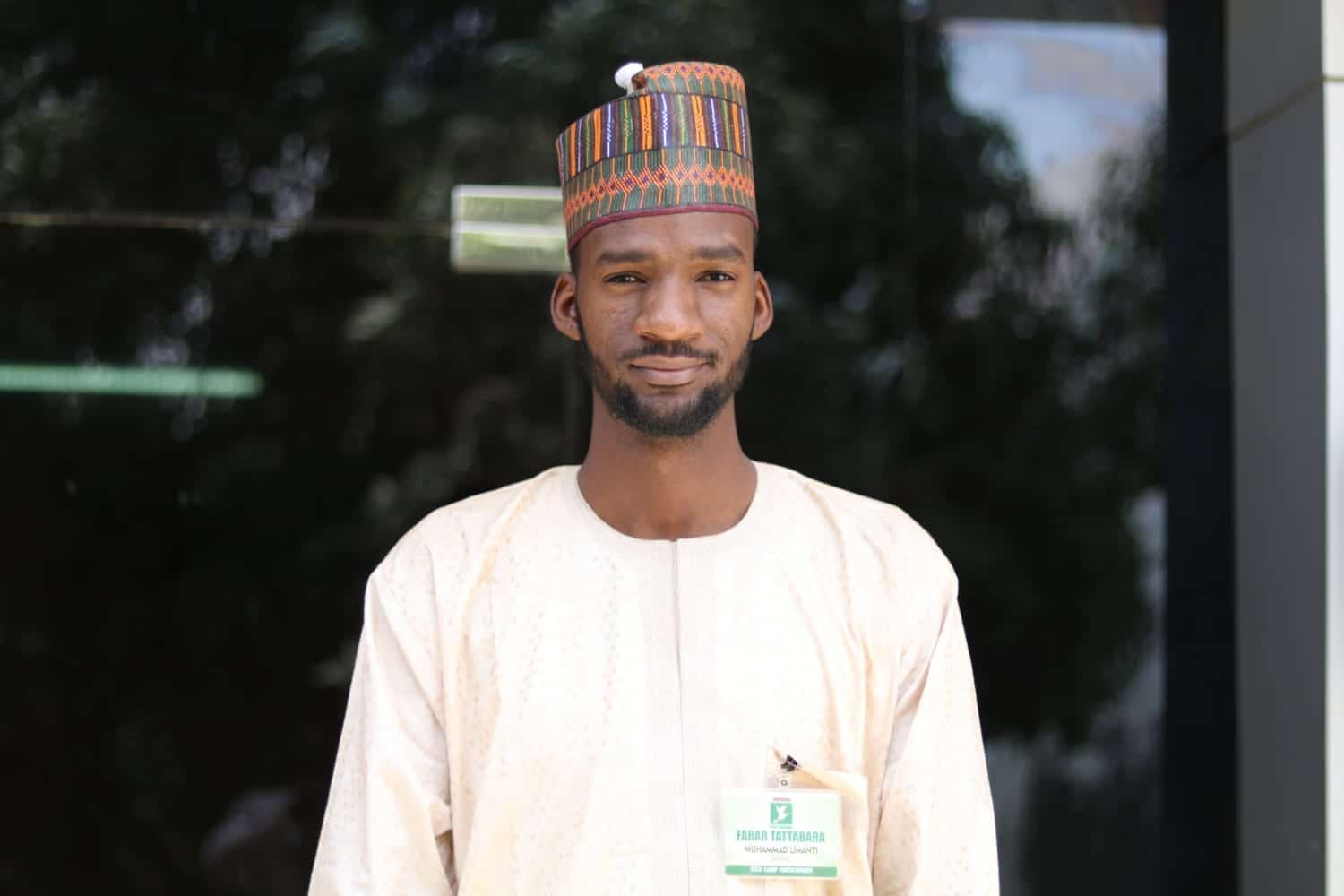
“Ina Mafita empowers youth by providing solutions about the challenges we face. It informs the youth, which is vital because information is power. To be positive you need to be informed.”
Impact & Reach of this Project
90%
reported changing their behavior in a positive direction
15 Million
listeners reached weekly
70%
reported spreading the word and encouraging others to listen to Ina Mafita
Partner with Us
Support EAI in scaling our ground-breaking alternative messaging approach across the developing world and beyond.